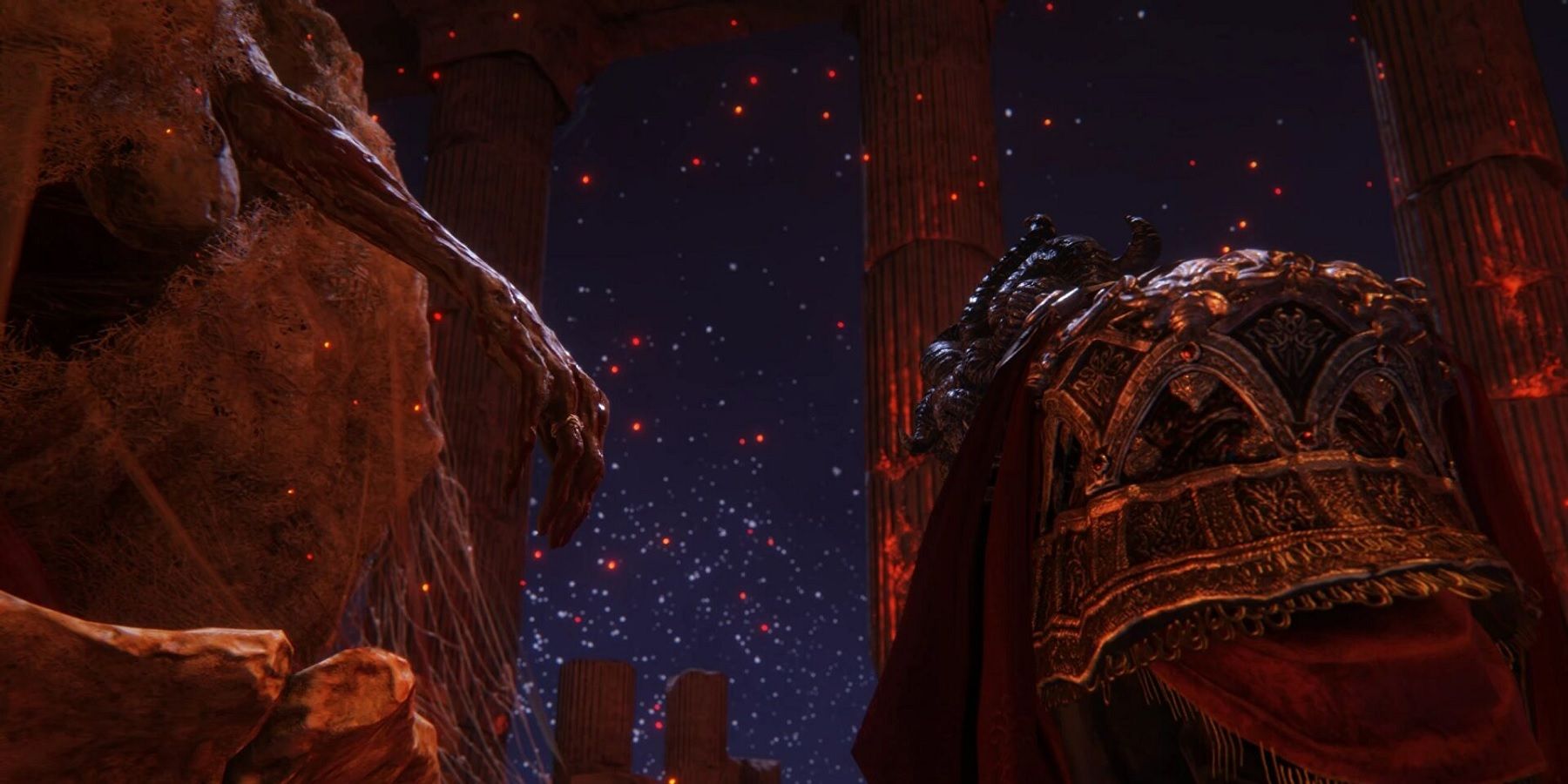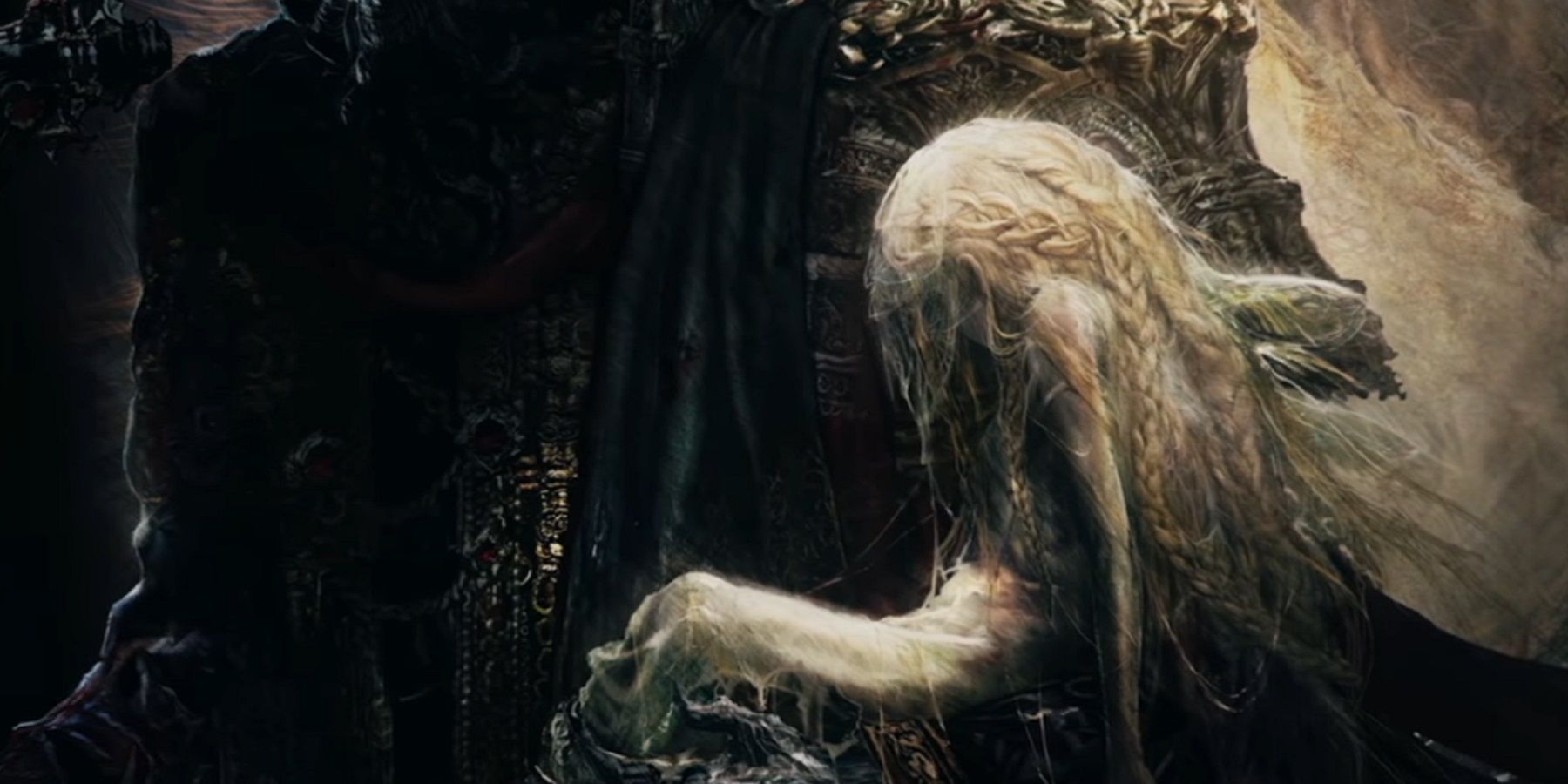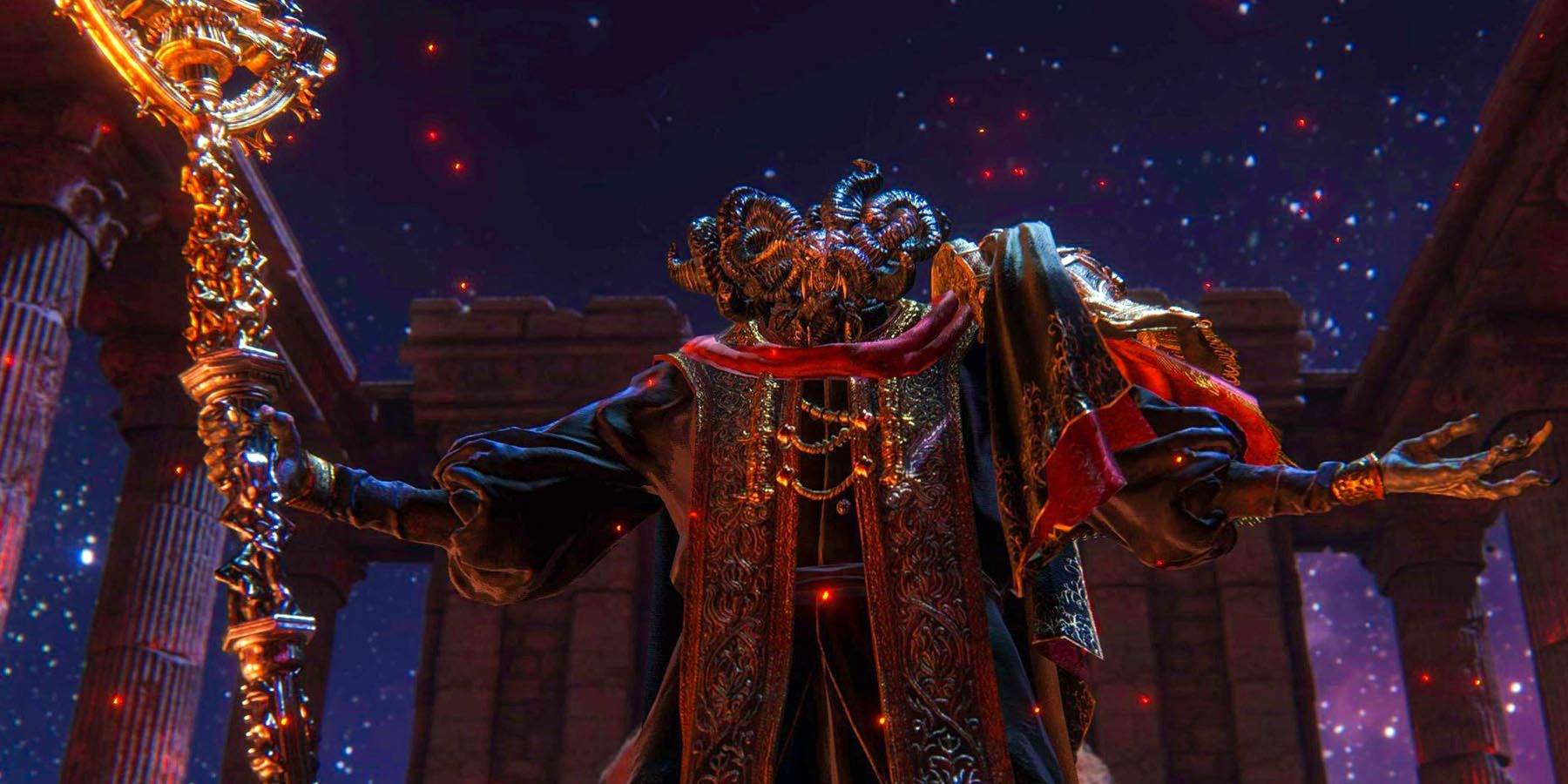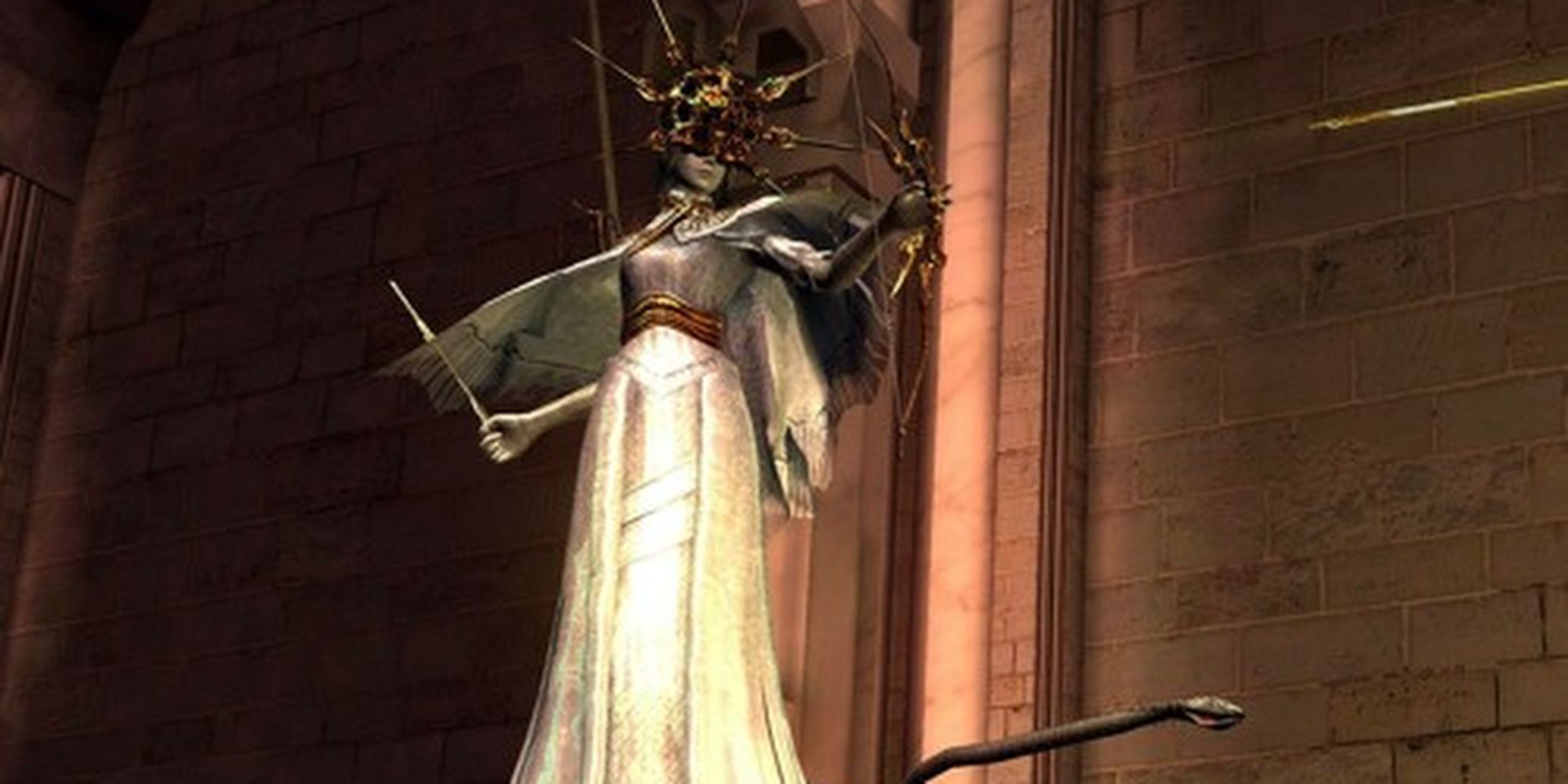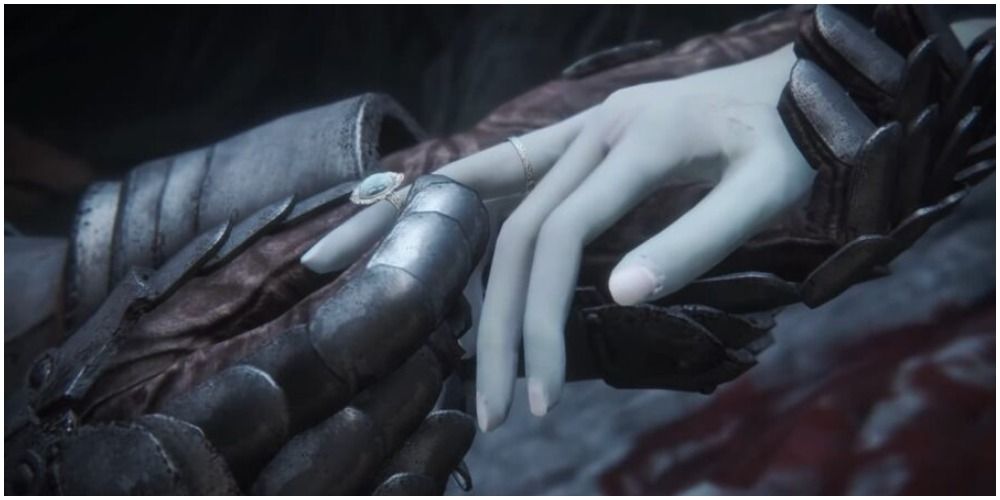The lore and narrative in Elden Ring builds one of FromSoftware's best worlds, with dozens of characters all acting and conflicting with each other to bring The Lands Between to life. Some of these characters that have impressive impact on the world are even hidden away as secret bosses in order to uncover the truth of characters like Ranni the Witch, or Mohg, Lord of Blood.
However, in what may have simply been an effort to make for compelling and complex villains, Mohg in particular stands out as an unfortunate piece of representation when examining his relationship with one of his siblings. While this may not have been the intended read when Mohg and Miquella's complicated relationship was being crafted for Elden Ring, the result has one of the worst implications for LGBT+ representation in a FromSoftware title.
Mohg and Miquella Explained
For those who haven't dived quite so far into the Elden Ring lore, Mohg and Miquella are Demigods. This means that both of these characters are the children of the Goddess Queen Marika, and therefore possess considerably more power than the average fighter wandering around The Lands Between. Mohg was born an Omen, one of the cursed children born with horns protruding from their bodies who are either killed or disfigured in infancy, or locked away deep underneath Leyndell. On the other hand, Miquella is a beloved prodigy who was born cursed with eternal childhood and was made an Empyrean, possibly destined to take on the role of God from his mother.
Before the events of the game, Miquella had locked himself away in a cocoon that allowed him to feed his blood to a new great tree, known as the Haligtree. There, he hoped to cure himself of his agelessness, as well as relieving Elden Ring's toughest boss Malenia of her scarlet rot. However, sometime after the Shattering, Mohg stole Miquella from the Haligtree hoping to raise the Empyrean to Godhood and become his Consort.
The Terrible Implications of Mohg's Dynasty
Everything about the characters is intriguing and compelling, with Mohg being the cursed son of a Goddess who devotes himself to an Outer God in order to find freedom from being imprisoned under the Capital and make a claim for Lordhood. It's when looking at how Mohg tries to go about trying to become a blood-obsessed Elden Lord that several negative implications start to crop up. In short, Mohg becomes obsessed with and kidnaps a child in order to become his consort.
Becoming Miquella's consort would require the two to be married after he is risen to Godhood. This would be fine, and actually one of few times in FromSoftware titles that highlights and LGBT+ marriage between two men. However, Miquella's specific condition and familiar relationship to Mohg makes for a set of appalling implications.
To start, Miquella is a child. Regardless of how long he has existed as a child, his description in-game is that he is forever cursed with childhood. On top of that, Mohg stole Miquella away while he was asleep, in order to raise him in his image and then marry him. The entire situation, whether intended or not, is that of a man who wants to force a young boy into marrying him. It's true that the player fights Mohg as a villain, so giving him negative qualities is fine from a strictly narrative perspective. However, these exact qualities are the negative and categorically untrue stereotypes that hateful people use in real-life to impose restrictions on the LGBT+ community.
FromSoftware's History With LGBT+ Characters
In previous games by FromSoftware, the developer has had a strange relationship with characters that could be regarded as LGBT+ representation. Most notably is that of Gwyndolin, from Dark Souls, who has taken on a bit of a second life in the community with fans focusing on the character possibly being transgender. Now, the use of "possibly" isn't accidental here, as the game goes through great lengths to continue calling Gwyndolin by male pronouns and other identifiers, even though he expresses female.
When read at face value, the description of Gwyndolin is actually much less about the character being trans, and more closely links to another character's flaws. Essentially, Gwyndolin's father, Gwyn, saw him as weak for having an affinity for sorcerers and raised him as a daughter as a form of punishment and humiliation. Just like with Mohg, Gwyn is a villain in the end, so his misogyny is fine as a character flaw from a narrative perspective to give players another reason to want to stop him. Regardless, it's not a great look to either misgender the only trans character in the series, or present being trans as a result of abuse.
Beyond Gwyndolin, there hasn't really been any other representation for LGBT+ fans in any other FromSoftware game. Even Dark Souls 3 went as far as to allow the player to get married, but changed the gender of the character Anri to be opposite of whatever the player was. FromSoftware seemingly isn't looking to make a story that focuses on LGBT+ characters or issues and that's the developer's choice. A lot of modern games never bother to focus on representations of any kind, especially ones that are more about a protagonist like Elden Ring's Tarnished who silently wanders The Lands Between, slaying gods and monsters along the way.
Ranni At Least Gives Better Representation
It's likely that the implications of Mohg being an incestuous child-groomer weren't exactly a top priority when writing his character. However, that doesn't mean that the extremely harmful implication doesn't exist within the story or is entirely forgivable. The deeper insights of Mohg's backstory hold up a negative belief that some people in the real world already hold against members of the LGBT+ community. This may have been the kind of read that slipped through the cracks while developing Miquella and Mohg, but it's the type of thing that fans might hope FromSoftware to have drifted away from earlier on.
That being said, there is at least a small amount of positive representation for bisexuality through Ranni's quest in Elden Ring. Unlike Anri in Dark Souls 3, Ranni is always a woman and will marry the player regardless of which gender they choose for their character. Thanks to that, it's hard to believe that FromSoftware intentionally propped up hateful propaganda with Mohg, and instead was attempting for the type of complex character interactions that George R. R. Martin is known for. The familial relationship among royals is reminiscent of an affair that appears in Martin's Song of Ice and Fire series.
The point is that there is a read to be made on Mohg's relationship with Miquella, and it's meant to put the Lord of Blood in a negative light. It's just a step beyond unfortunate that this negative light is shining on one of the first openly gay characters in the Soulsborne series. Maybe if FromSoftware decides to elaborate on Miquella in Elden Ring's DLC, then the developer could paper over the implications with a more direct take on the characters' relationship.
Elden Ring is available now for PC, PS4, PS5, Xbox One, and Xbox Series X/S.

